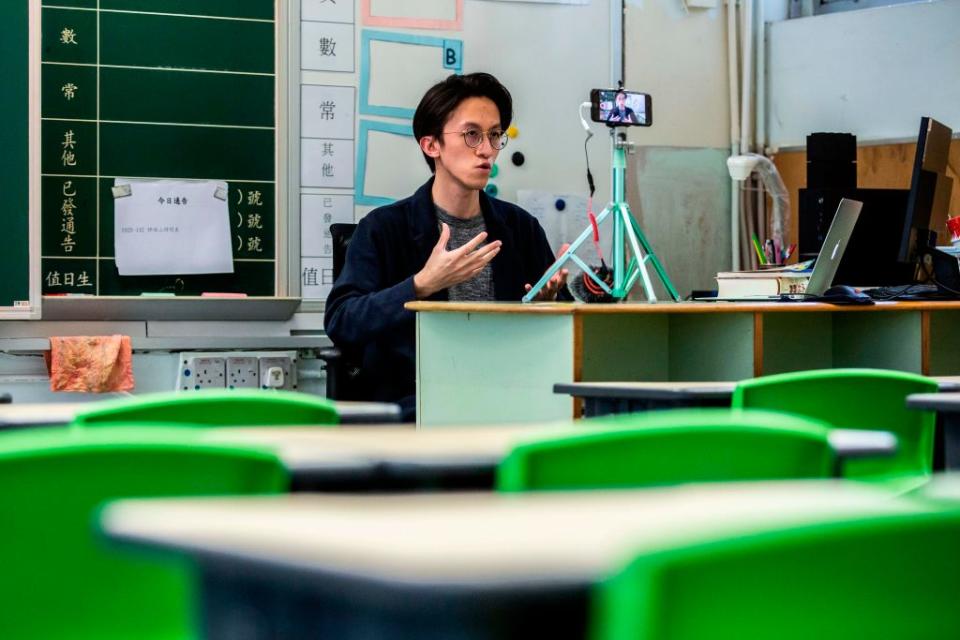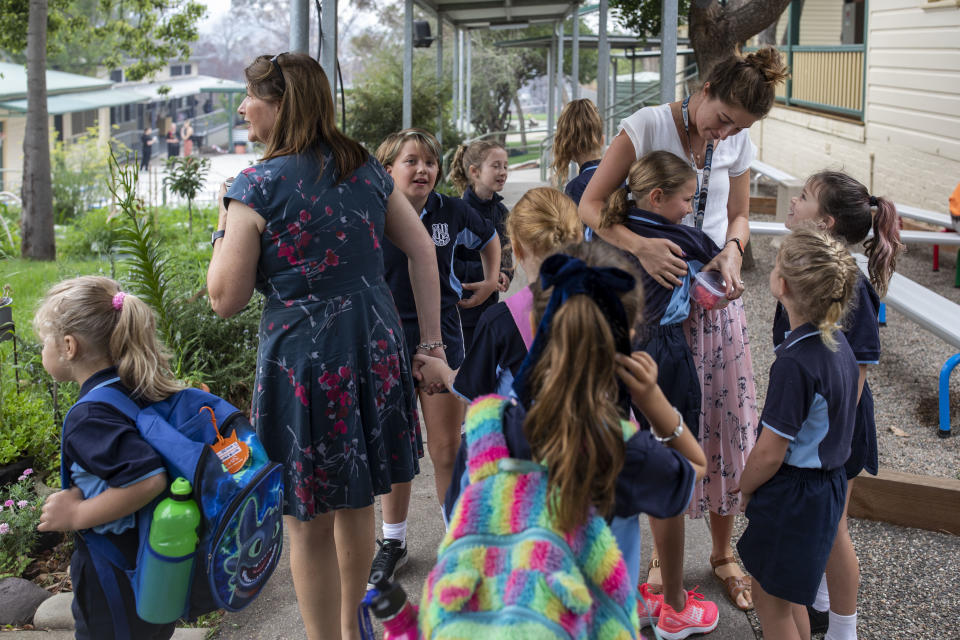Why is the government demanding schools stay open?
The federal government and nation’s chief medical officers are standing by their assertion that schools should remain open in the face of intense debate around the subject.
Despite a number of private schools and universities shutting their doors and moving to an online curriculum due to the novel coronavirus outbreak, state governments are also towing the line that the best thing is for schools to remain open.
The government says the decision is based on the advice of health experts, citing a few main reasons for the unwillingness to see widespread school shutdowns.
The government is worried about disrupting society, and the educational progress of students, more than is necessary and believes children not at school will be out in the community potentially spreading the disease to more vulnerable people.
It also believes that as much as 30 per cent of the medical workforce could be required to stay home to look after their children if schools closed, having major flow on effects as the country’s health system works to handle the crisis.
The third major reason behind the thinking is that children don’t appear to develop severe cases of the disease, and thus it’s hoped they are somewhat less likely to spread bad cases of COVID-19. This, however, is not backed up by the available evidence.
LIVE: Coronavirus news and updates from around the world

Government relying on good hygiene rather than testing
When defending its insistence on schools staying open, the government points to Singapore as an example of a country that has successfully subdued the novel coronavirus while keeping education centres open.
“The health advice is that schools should remain open,” Prime Minister Scott Morrisons told reporters Wednesday morning.
“Interestingly, this is also what Singapore has done. Singapore has been one of the more successful countries. In Singapore, the schools are open.”
However, what the federal and state leaders have not been mentioning when holding up this example, is that Singapore has been doing extensive testing in schools, subjecting students and teachers to daily health checks including temperature screenings as they enter the school, and sending anyone with potential symptoms home.
In lieu of testing, Australian authorities say it is vital that sick people don’t go to school.
“We don't know whether children may be a vector of asymptomatic or transmission with low levels of symptoms. So we need to make sure that our schools are made as safe as possible,” Australia’s Chief Medical Officer Brendan Murphy said this morning.
“We need to make sure that no sick child goes to school. We need to make sure that no sick teacher goes to school.”

Then there’s the other side of the argument which says it’s not just children that we need to worry about when it comes to keeping schools open.
Plenty of adults work in schools: teachers, maintenance workers, and office staff. They are all at heightened risk of contracting COVID-19 while being required to be at school where social distancing is all but impossible.
While mandated school shutdowns don’t appear likely before the Easter holidays in the second week of April, the government has not ruled it out for the future.
In the meantime, authorities are saying schools need to maintain good hygiene protocols.
“Very hard to do in a school, but we can trust our teachers to do it,” Prof Murphy said.
“Children should be washing their hands regularly, particularly when they're eating and particularly when they're touching common areas.”
The Opposition, meanwhile, has urged the government to start planning for how to support health workers if and when school do need to shut down, pointing to Norway where skeleton staff have been left in schools to teach the children of doctors and nurses.
Suppression strategy ‘has got to include schools’
A widely circulated study released this week by the Imperial College of London on how best to tackle the COVID-19 outbreak, posits the shutdown of schools and universities as a necessary measure to suppress the fast moving pandemic.
Health communicator Dr Norman Swan, who this week urged the government to “stop dicking around” and start closing schools, said the prevailing research indicates schools will likely need to be closed to get a handle on the virus.
“Their [College of London] modelling shows that schools and universities are critical to a suppression model. So if you really want to get this down and control it the way that China did, you've got to shut schools and universities because a lot of young people do get infected,” he told the ABC Wednesday morning.
“The data from Australia is conflicted on this, but overseas, 30 per cent of infections come from young people.”
While younger children don’t develop severe symptoms of the disease, they can still carry the virus and pass it on. “They are spreaders,” Dr Swan said.
According to the College of London analysis, “any significant suppression strategy has got to include schools and universities,” he said.
Do you have a story tip? Email: newsroomau@yahoonews.com.
You can also follow us on Facebook, Instagram and Twitter and download the Yahoo News app from the App Store or Google Play.





